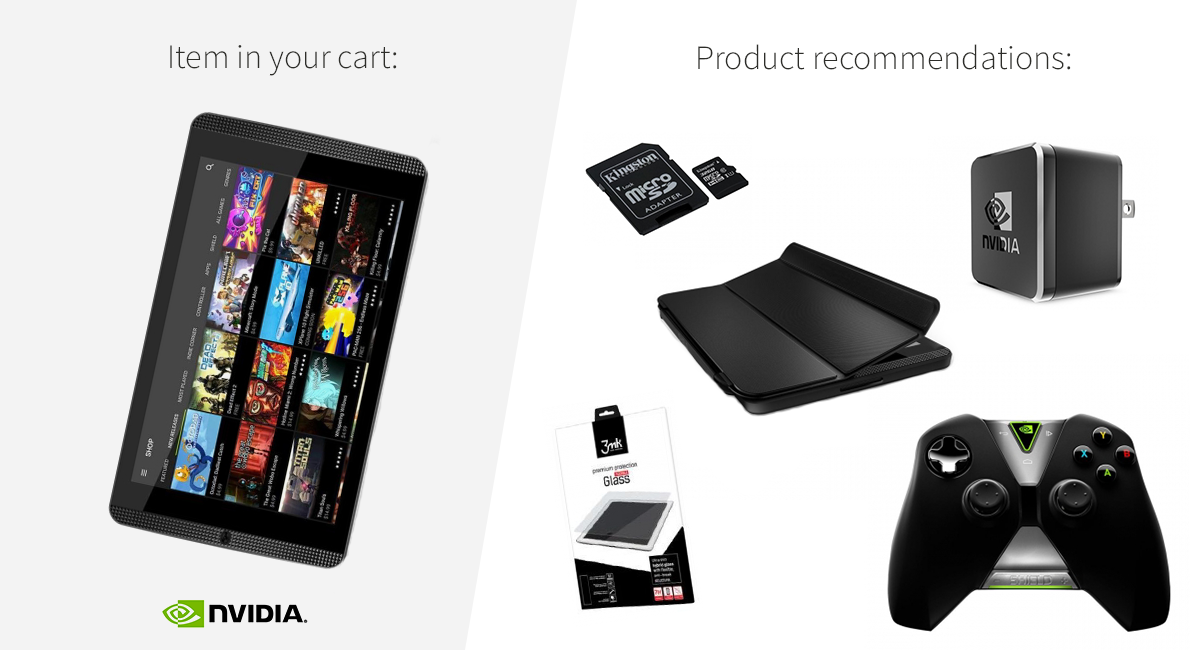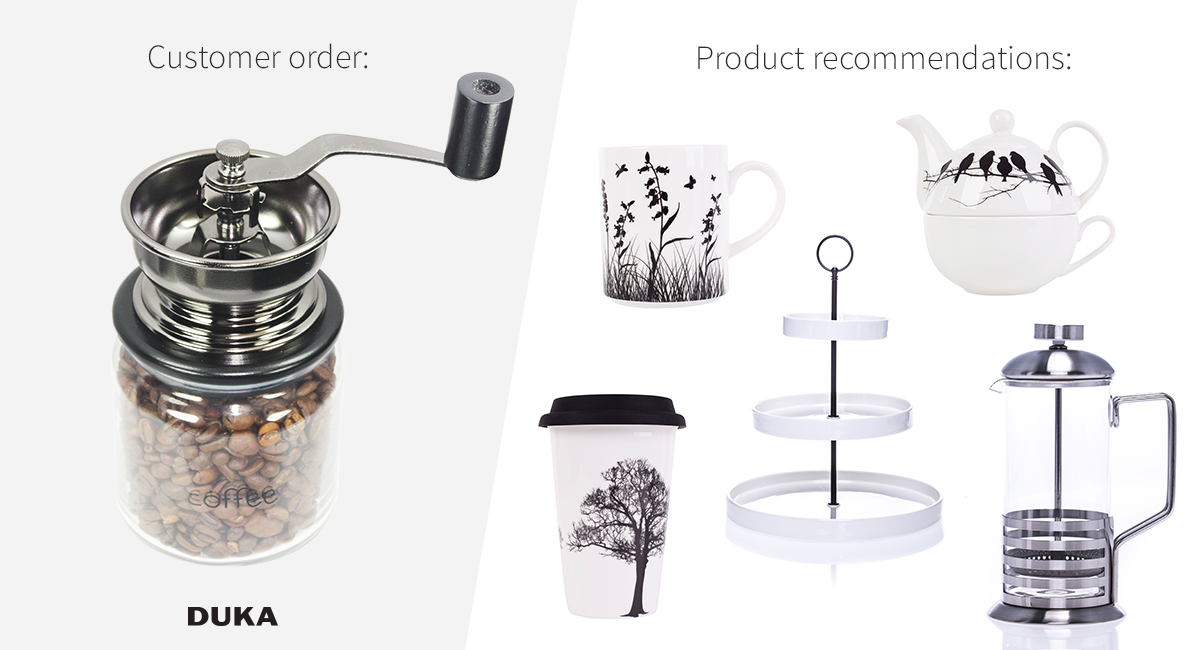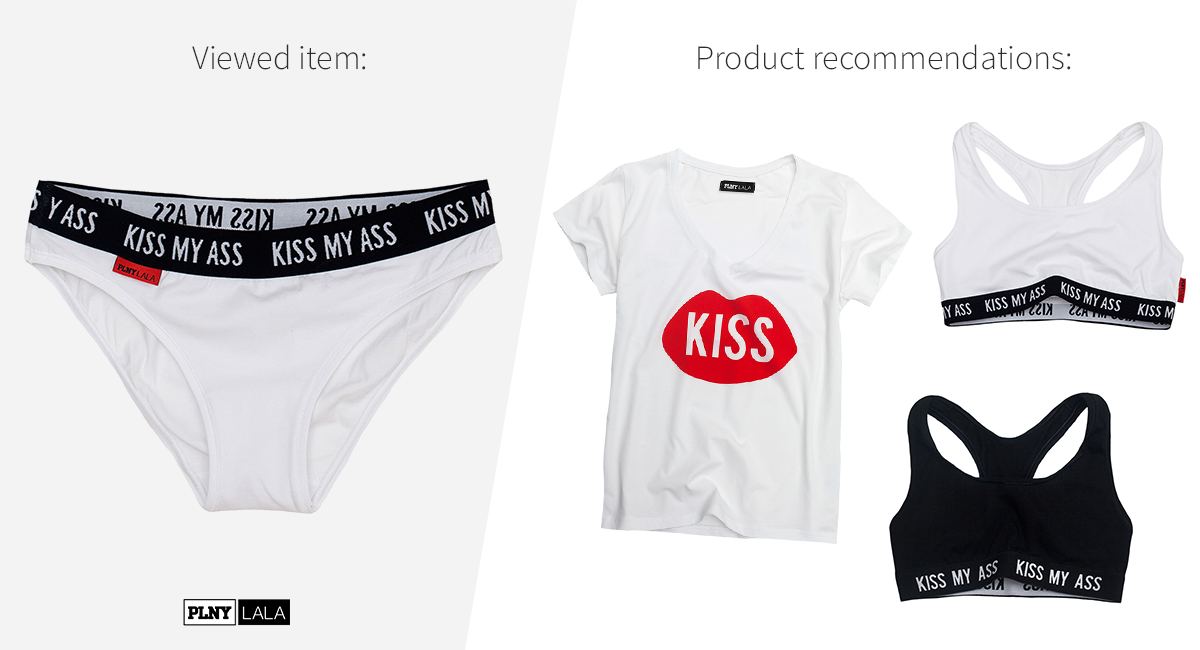Do you want to increase sales and build even better relationships with your customers?
Marketing Netflix would not be ashamed of! Learn what the phrase segment of one means and how you can use that knowledge in order to assist communication with your customers. Send newsletters precisely customised to their needs. The article discusses how to make recommendations to customers of an e-shop on the basis of purchases made […]
Marketing Netflix would not be ashamed of! Learn what the phrase segment of one means and how you can use that knowledge in order to assist communication with your customers. Send newsletters precisely customised to their needs. The article discusses how to make recommendations to customers of an e-shop on the basis of purchases made by other customers.
Artificial intelligence not only in the movies
If you have not watched the 2015 film Ex Machina yet and you like SF films, I strongly recommend going to see it. I will not reveal too much by saying that the plot of this film is set around the idea of creating a human-like robot whose intelligence is based on the most popular Internet search engine. The presented concept is much closer to fiction than science (fortunately!), the film joining the trend of motion pictures warning about the dangers of new technologies. So you can ask: what does it have to do with marketing? Well, it does a bit…
Image 1. Machine learning at edrone: recommendation algorithm in action.

Google, Facebook, Netflix, Spotify, Amazon, supermarket chains such as Walmart, large airlines… There are almost countless examples. Today, artificial intelligence is the driving force behind personalised marketing among the leading companies in their industries. The reason for the hype associated with using algorithms of artificial intelligence in marketing is that they make it possible to deal with enormous data resources we now have on our customers. They automatise repetitive tasks, making errors far less frequently than a human. They optimise both the prices of products and their distribution. They provide new functionalities to their users. Furthermore, one cannot overestimate the fact either that they open the road for marketing scenarios which would be inconceivable without the use of achievements of machine learning.
What is machine learning?
As of today, a computer does not think like a human. It is a tool with which we can gather data (knowledge) and process saved information in a probabilistic manner. This means that the algorithm of our choice searches for rules describing the possessed knowledge. Subsequently, we can apply these rules to new data. For instance, using a marketing system, one can determine which customers have similar preferences concerning products. Let us imagine the following situation: product X has been rated by a part of our shop’s customers, by some positively and by others – negatively. Knowing the extent to which different customers agree in their product ratings, we can predict the rating of product X which would be given by customers who have not yet seen it. Thanks to this, we can select customers who should particularly like the product and then send them e-mails offering the said product. That is the principle of operation of Netflix (see Image 2).
Image 2. Scheme of the recommendation algorithm at Netflix.

Progress in recommendation technology is so advanced that a phrase has been coined: “segment of one”. Marketing segmentation is a process of division of customers or potential customers within a given market into groups where the needs of customers are identical or similar, and they can be satisfied with a homogeneous marketing composition. Next, a segment is a group of actual or potential customers who can be expected to react similarly to a given offer. Thus, the phrase “segment of one” means that we can describe the needs of our customers so precisely that each of them creates their own segment! What is more, each of these segments will receive different, customised marketing communication. Netflix boasts that there is not a single version of their product – there are no more and no less than 75 million, i.e. as many as Netflix’s users.
Who is your customer?
Along with increasingly better education of consumers, mass marketing becomes less and less effective. Customers can easily compare the offers of many shops simultaneously, follow trendsetters’ blogs, become trendsetters themselves or follow the opinions about products on independent portals. Expectations regarding personalised communication carried out in real time are higher though. In order for the offers not to end up among the spam, they have to be interesting and delivered on time.
Image 3. Machine learning at edrone: recommendation algorithm in action.

The challenge that edrone has set itself is to provide a coherent and comprehensive system which will make it possible to implement fully personalised marketing communication. Furthermore, the said market communication is proactive, i.e. it responds to the actions of customers and is even ahead of them. The ideas behind edrone are, in my opinion, revolutionary. What follows is edrone’s manifesto:
1. To be able to touch the customer.
As a marketer, you can learn about the behaviours of customers in an e-shop in real time (viewed/added to the cart/purchased products). You see information on a specific human with such data as in their Facebook profile. This allows you to discover knowledge about your customers in a much better way than dry statistics and synthetic descriptions of target groups. That is how the human mind works – it is concrete examples it finds convincing – characters and not segments.
2. Minimum Loveable Product.
Integrating a shop with the edrone system is as easy as installing a new application on your smartphone and its use is as pleasant as using an iPhone. edrone’s interface, the so-called Mission Control, has been designed by UX specialist.
3. Machine learning for everyone.
Creating a model, which will predict future behaviours of users, requires the work of an expert on machine learning algorithms. However, the majority of shops do not want or cannot afford to set up a new department responsible for artificial intelligence in their company.
Artificial intelligence in edrone
One of the algorithms we have made available to our customers is indeed a recommendation system similar to that from the Netflix example. Recommendations are created by means of an analysis of products bought together in one cart under one transaction. The algorithm adapts itself to the characteristics of a given shop (i.e. to the number of unique products, the number of transactions in a pre-set period of time, the average number of products in the cart). Thanks to this, it enables recommending products to a maximally large percentage of the shop’s customers. Recommendations are communicated in the form of an e-mail encouraging to learn more about selected products. Recommended products are matched with products recently viewed/added to the basket/purchased by the customer.
Image 4. Machine learning at edrone: recommendation algorithm in action.

The recommendation algorithm is characterised by high flexibility, allowing one to define the time after which an e-mail with recommended products will be sent. It also makes it possible to define “blacklisted” product categories as we do not always want all product categories to be recommended, e.g. prescription medicine sold in an online pharmacy. Even if the customer was interested in a given drug indicated by the algorithm, it would not make any sense to recommend it as they probably could not buy it.
Artificial intelligence in your shop!
Using “smart” marketing scenarios provided by edrone, we rely on real customer behaviours and knowledge that we can get through social media. That we rely on the data created by the shop’s customers themselves is more important than it would seem. Marketing becomes much more effective if we let the machine learning algorithm identify behavioural patterns of customers and will subsequently use the identified rules to predict and affect future behaviours of customers. Moreover, creation of such marketing scenarios is universal. It does not depend on the industry in which a shop operates or number/type of products/services they offer. It means that the approach to the shop’s customers is not a mass approach. On the contrary, it allows applying the “segment of one” approach. Strategies are general, but it is the marketer who has the ultimate impact on what they communicate to their customers.
Register on WEBINAR
Maciej Mozolewski
Postgraduate studies in Statistical Methods in Business at the University of Warsaw. Since then, he’s been dealing with the issues of artificial intelligence and machine learning.
Do you want to increase sales and build even better relationships with your customers?